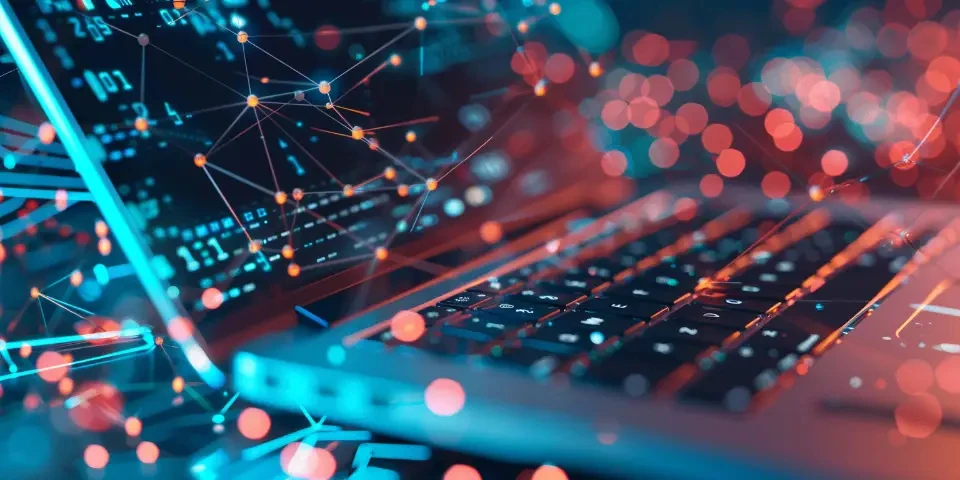AI for Social Good Exploring the Potential of Artificial Intelligence in Solving Global Challenges
Artificial Intelligence (AI) has emerged as a powerful tool that has the potential to address and solve global challenges for the greater good of society. Its ability to analyze vast amounts of data, learn from patterns, and make autonomous decisions has opened up new possibilities in various domains. In this article, we will explore the potential of AI in solving global challenges from multiple perspectives.
1. Healthcare
AI has the potential to revolutionize healthcare by assisting in early disease diagnosis, personalized treatment plans, and efficient patient monitoring. Machine learning algorithms can analyze medical records, images, and genetic data to identify patterns and predict diseases before symptoms manifest. AI-powered robotic devices can also aid in surgery, providing more precision and reducing human error.

Furthermore, AI can help in drug discovery by analyzing massive amounts of biomedical literature and predicting the effectiveness of potential compounds. This can accelerate the development of new treatments for diseases.
2. Environmental Conservation
AI can play a crucial role in addressing environmental challenges, such as climate change and pollution. Machine learning algorithms can analyze satellite imagery to monitor deforestation, forest fires, and illegal fishing activities. This data can help governments and organizations take timely action to protect valuable ecosystems.
Additionally, AI can optimize energy consumption by analyzing data from smart grids and suggesting efficient energy distribution. It can also help in waste management by identifying recycling opportunities and reducing landfill waste.
3. Education
AI can enhance the quality of education by providing personalized learning experiences. Intelligent tutoring systems can adapt to individual student needs, providing tailored lessons and feedback. Natural Language Processing (NLP) algorithms can also analyze students' written work, helping teachers assess their progress and provide targeted guidance.
Furthermore, AI can bridge the education gap in remote and underserved areas by providing access to online courses and virtual classrooms. This can democratize education and empower individuals in disadvantaged communities.
4. Disaster Response
In times of natural or man-made disasters, AI can assist in disaster response efforts. AI-powered drones can survey affected areas, identify survivors, and even deliver supplies to inaccessible locations. Machine learning algorithms can analyze social media data to assess the needs and concerns of affected populations, enabling prompt and targeted response.
Additionally, AI can predict and mitigate the impact of disasters by analyzing historical data and identifying high-risk areas. This can help governments and organizations implement preventive measures and minimize the damage caused by disasters.
5. Poverty and Hunger
AI can contribute to reducing poverty and hunger by improving resource allocation and optimizing supply chains. Machine learning algorithms can analyze data on poverty rates, income levels, and food availability to identify regions in need. This information can assist governments and organizations in designing targeted interventions and distributing resources more efficiently.
Furthermore, AI can help in optimizing agricultural practices by analyzing climate data, soil conditions, and crop patterns. This can increase agricultural productivity, ensuring a more sustainable and reliable food supply.
6. Cybersecurity
With the growing threat of cyber attacks, AI can strengthen cybersecurity measures. Machine learning algorithms can analyze network traffic patterns to identify potential threats and anomalies in real-time. AI-powered systems can also detect and respond to cyber attacks faster than human operators, minimizing damage and preventing data breaches.
Moreover, AI can assist in developing robust encryption techniques and vulnerability assessment tools, making systems more resilient to cyber threats.
7. Social Justice
AI can contribute to achieving social justice by reducing bias and discrimination in various domains. Facial recognition algorithms can be trained to be more inclusive and accurate across different racial and ethnic groups. This can help in improving fairness in law enforcement and reducing wrongful convictions.
Additionally, AI can assist in analyzing large datasets to identify systemic biases in areas such as hiring practices and lending decisions. This information can support efforts to promote equal opportunities and combat discrimination.
8. Transportation
AI can revolutionize transportation by improving safety, efficiency, and sustainability. Self-driving cars powered by AI can minimize human error and reduce accidents. Intelligent traffic management systems can optimize traffic flow, reducing congestion and travel times.
Furthermore, AI can enable smarter logistics and delivery systems. Algorithms can optimize routes, load distribution, and fuel consumption, leading to cost savings and reduced carbon emissions.
Common Questions and Answers:
Q: Can AI completely replace human professionals in various fields?
A: AI is designed to augment human capabilities rather than replace humans entirely. While AI can automate certain tasks and processes, human expertise and creativity are still essential for decision-making, complex problem-solving, and providing the human touch in many domains.
Q: How can AI ensure data privacy and security?
A: AI systems should be developed with strong data privacy and security protocols in place. Encryption techniques, secure data storage, and strict access controls can ensure that personal and sensitive data remains protected. Additionally, regulatory frameworks and ethical guidelines can provide further safeguards.
Q: Will AI lead to job loss and unemployment?
A: While AI automation may lead to job displacement in certain industries, it also has the potential to create new job opportunities. As certain tasks become automated, humans can focus on higher-level tasks that require creativity, critical thinking, and emotional intelligence. However, reskilling and upskilling programs are crucial to ensure that individuals can transition into these new roles.
Explore your companion in WeMate